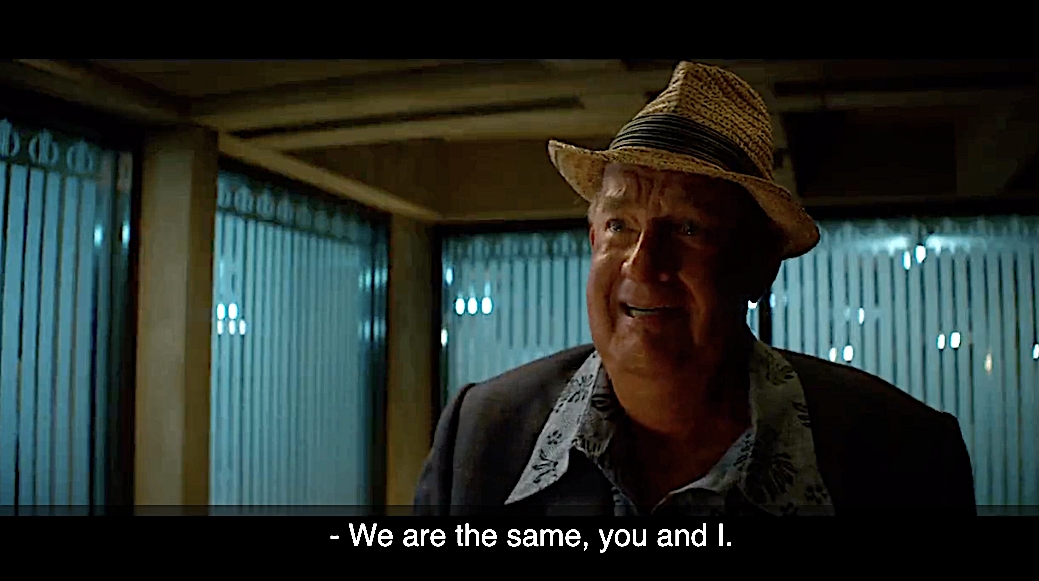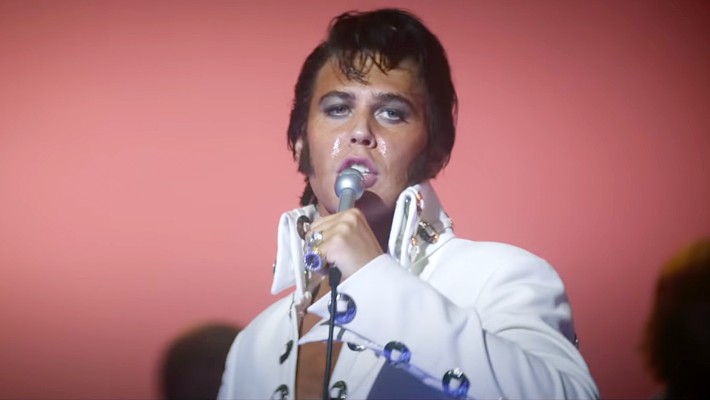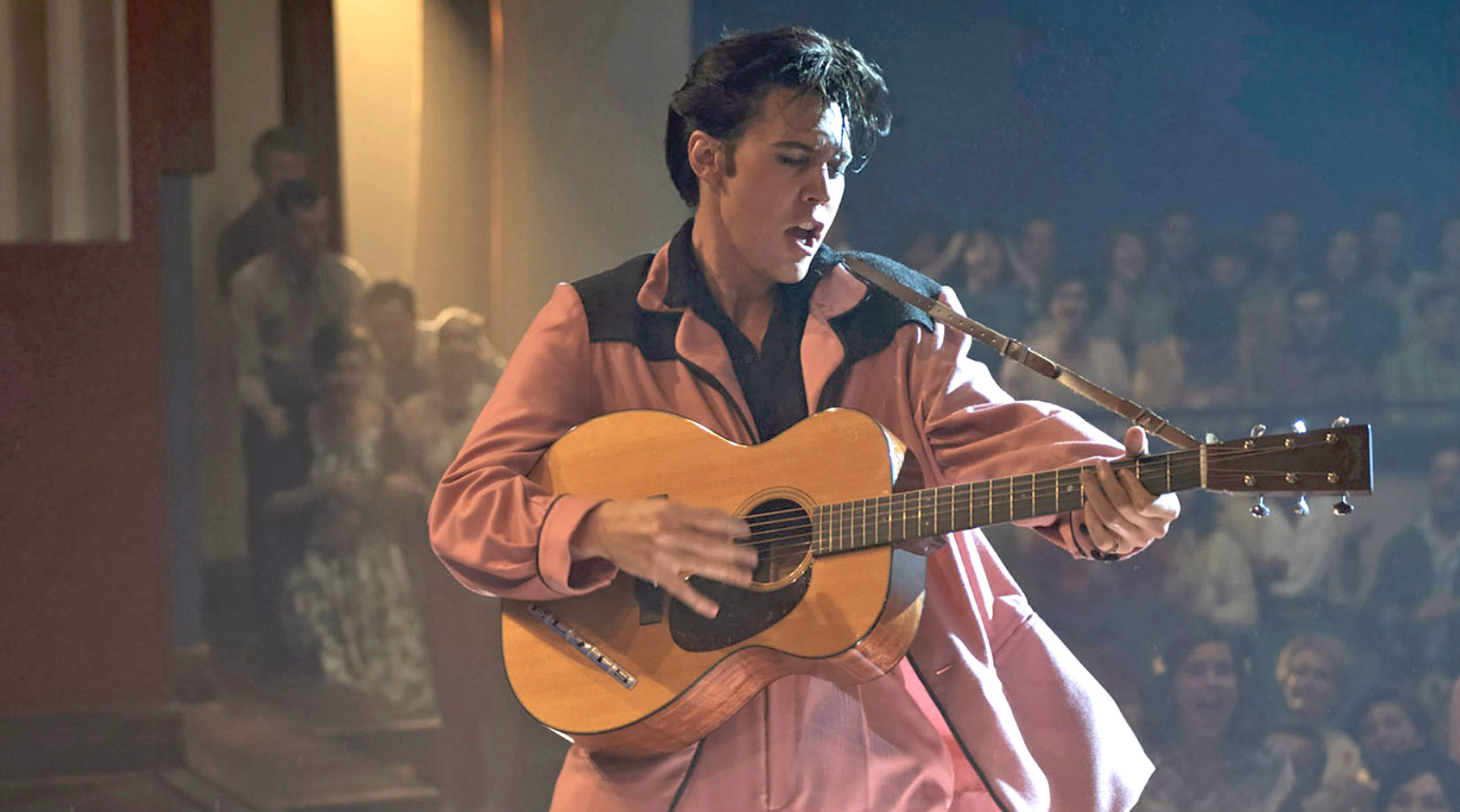We have reached that point in summer when Hollywood takes a break. By mid to late August, the new releases in theaters are the summer stragglers, the films that wanted to be summer hits but knew they had no chance against the blockbusters of May, June, and July. Television is also taking a little break, save for the prequel series of that big show based on very long books that are coming to HBO soon. This is all a long way of saying you need something to watch, and it should be Elvis.
The exuberant, ridiculous Elvis Presley biopic from the very exuberant and often ridiculous Australian director Baz Luhrmann hit theaters in May and has remained a box office hit since. Now, it is available to rent for $19.99 at home. You should see it in theaters, but if you’re wary about being in a public space right now and/or if it is too hot outside for you to go from inside your home to inside a movie theater to watch Elvis, that’s fine. The 2-hour and 39-minute epic starring Austin Butler and Tom Hanks is a non-stop thrill. When it drags, it’s still one of the most fast-paced, ridiculously entertaining things ever made. Even if you hate the movie, you will have enjoyed the truly singular experience. Here are all of the reasons you should watch Baz Luhrmann’s Elvis:
Chaos King Baz Lurhman

Sunscreen activist Baz Lurhman is a chaos king. The innovative, flashy director of Romeo + Juliet and Moulin Rouge! does not always hit: Australia is a snooze, and not even Leonardo DiCaprio could save the alluring adaptation of The Great Gatsby. But one thing is always true of Baz Luhrmann’s films: they are theatrical visual feasts, blending elements of musical theater and music videos into cinema. Elvis — or at least its first hour — might be Lurhman’s most chaotic cinema to date, with visually busy scenes that move so quickly they practically overlap. If you were given a quiz on what happened in the first act, it would have to be graded on a curve. As the film gets into Elvis’s later career, however, it narrows its focus, which, in contrast, gets deeper into Elvis’s psyche. The latter half of the film is still chaotic in that classic Baz way, but is nothing short of a masterpiece in its depiction and analysis of Elvis in his later career and toward the end of his short life.
Austin Butler

Denzel Washington, who believed in Austin Butler so much that he personally called Baz Luhrmann about casting the actor in Elvis, is right to be obsessed. Butler’s committed, transformative performance as the King of Rock has several stages. In the first half of the film, we see an intentional separation of Butler from Elvis in his earlier years, as he’s playing a man who is conflicted about his fame and who he is: Elvis is lost and confused, which Butler takes advantage of by playing so himself, in a sort of meta way that nearly breaks the fourth wall. But as the film goes on and as Elvis gets more comfortable with himself and his fame. As Elvis unravels, Butler disappears into the character, leaving behind the unsure young man from earlier in the film. Butler should get at least a nomination for best actor at the Oscars next year, and even though there are many more films to see, I know I will be mad if he doesn’t win. Elvis is already doing for Austin butler what Romeo + Juliet did for Dicaprio: turning its lead into a heartthrob and one of Hollywood’s major players. (Since Elvis’ release, Butler joined the cast of Dune Part II)
Tom Hanks

Many have said that Tom Hanks is terrible in Elvis. His accent is bad. He’s wearing a fat suit and prosthetics (he honestly kind of looks like my maternal grandfather, may he rest in peace). On the surface, everything about Hanks’ performance in Elvis is bad, but there’s a bit of genius behind it. For decades, Hanks has been America’s dad, always expected to play the hero or the love interest, the nice guy. Here, Hanks finally transforms into an unrecognizable villain as Elvis’ financially predatory manager Colonel Tom Parker. Every actor — especially as they get older — deserves to unleash Willem Dafoe in The Lighthouse-level chaos every once in a while. The performance demonstrates that Hanks has even more of this chaotic energy deep inside him, and he just needs the right director to get it out of him.
The Sweat

They don’t make movies like they used to anymore. In the 70s and 80s, movies — such as Dog Day Afternoon, Body Heat, and Top Gun —were incredibly sweaty, with characters drenched in sweat constantly either due to their environment or surroundings, or to simply create some drama. Sweaty movies are a rare gift these days, but in Elvis, Luhrmann shows respect for the wet look. At every opportunity possible, Austin Butler is drenched from head to toe. In between takes, I like to imagine Austin Butler walking through a misty waterfall. The sweat doesn’t always make sense, but we’re happy to see a return of Hollywood’s Wet Period anyway. Thank you, Baz!
Mic in Mouth

In Elvis, Austin Butler deep throats a microphone during a performance. This happened in real life, but for some reason, Austin Butler doing it is even better than the real Elvis doing it (if you are an Academy voter, please remember this). A microphone in the mouth also represents Luhrmann and this film best: unexpected, weird, kind of horny.







